I've been working with scripts making use of setInterval(fn,delay) function in my application and after reading about how setTimeout and JS work I encounter some weird results so I made a test: Here is the jsfiddle https://jsfiddle.net/jyq46uu1/2/
And the code as suggested:
var limit = 1000000000;
var intervals = 0;
var totalTime = new Date();
var startTime = new Date();
var uid = setInterval(
function () {
// final lap?
if (intervals == 9) clearInterval(uid);
for (i = 0; i < limit; i += 1) {
// just working the CPU
}
// reduce the iterations
limit = limit / 10;
intervals += 1;
console.log('Interval ' + intervals +' Time elapsed : ' + (new Date() - startTime));
// reset the time
startTime = new Date();
}, 250, 9);
Ok, from what I've red from http://ejohn.org/blog/how-javascript-timers-work/ Javascript make the timer calls for the function in setInterval even if the "thread is blocked", so if the function is still executing the call is just queued and so on and so on ... in my notebook that code produces this:
"Interval 1 Time elapsed : 4264"
"Interval 2 Time elapsed : 477"
"Interval 3 Time elapsed : 91"
"Interval 4 Time elapsed : 170"
"Interval 5 Time elapsed : 246"
"Interval 6 Time elapsed : 242"
"Interval 7 Time elapsed : 248"
"Interval 8 Time elapsed : 248"
"Interval 9 Time elapsed : 248"
Ok, if what I've red is true, by the time the first interval finished, ALL functions calls were in the queue ... in my script I'm reducing the work for every execution so every call should take fewer seconds than the previous one, BUT no matter how much iterations I set, the elapsed time always pick up the Interval pace after the 4th run. Maybe I got it wrong but if by the time 4264 all functions are already in the queue and are suppose to run immediately, they should show less time, right? ... if the 3th iteration displays 91 and the others are just behind they should take 91 or less. But this is not the case.
If you understand what is happening please explain it to me because I think I'm missing something.
